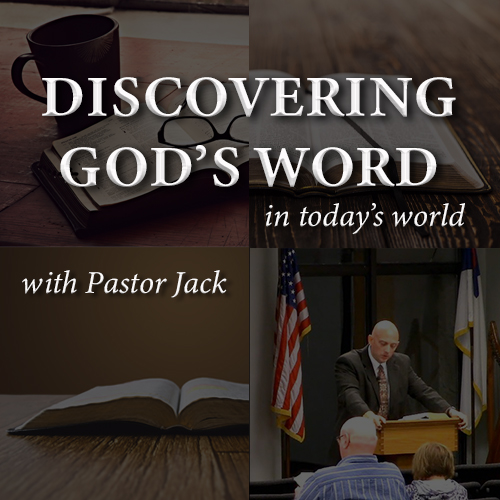
And when he had found him, he brought him unto Antioch. And it came to pass, that a whole year they assembled themselves with the church, and taught much people. And the disciples were called Christians first in Antioch. (Acts 11:26)
The guiding principles implemented by the church at Antioch were used to reach every corner of the world with the gospel of Jesus Christ. The church in Antioch was a “successful church,” and they were given the name “Christians” (“Christ like ones”) by the unbelievers that knew them (Acts 11:26). They were a teaching church which contended for the faith (Acts 11:26); they were a giving church (Acts 11:29); they were a missions-minded church, sending out Paul and Barnabas; they prayed and fasted; and they were independent and autonomous (Acts 13:2-3; 14:24-28; 15:35). Their two primary principles can be found in Acts 11. These guiding principles were the basis for their planning and accomplishments. The church in Antioch is a great model for us personally and for our churches, especially as we look into a New Year.
1.) Zeal is better than privilege.
In Antioch, Syria, there were no stories of grandmas taking the church members as kids to Sunday School. They had no Christian heritage. Abraham, Isaac, and Jacob were not their fathers. They were not given the law or the prophets as a nation. The church at Antioch did not have the big-name apostles as preachers like the Church in Jerusalem did. They were little in stature, number, and credibility, but strong in the Lord. Barnabas instructed these former pagans that “with purpose of heart they should cleave to the Lord.” (Acts 11:23). Painful, sinful, pagan memories were overcome by a burning desire for the Lord. In everything they did, their overarching purpose was cleaving to Christ.
Philippians 3:8, Yea doubtless, and I count all things but loss for the excellency of the knowledge of Christ Jesus my Lord: for whom I have suffered the loss of all things, and do count them but dung, that I may win Christ,
Christian history proves that many times the eternal work of the Lord does not get accomplished by “choir boys” but rather by “publicans and sinners” who “cleave to the Lord.” Why? Zeal for the Lord is more important than privilege.
2.) Quality is better than quantity.
The church at Antioch could have said, “There are no apostles here, we are nothing but Gentiles, and we don’t have campuses, or great curriculums.” Instead of giving excuses or being apathetic, they acted like they were in the big time! They were committed to the service of their small church. Jesus was preeminent in their church. Jesus in return could say, “what is going on in that church pleases Me!”
God is more impressed with quality than quantity. In Revelations, the best church was little and yet Christ-like in their behavior. Listen to the Lord’s commendation of the Philadelphian church in Revelation 3:8-12,“…for thou hast a little strength, and hast kept my word, … I will write upon him the name of my God (“Christians first”), … I will write upon him my new name.” In the book of Nehemiah, Sanballat and Tobiah criticized the Jews’ work as feeble saying, “What do these feeble Jews?” (Nehemiah 4:1-2) Nehemiah responded with “I am doing a great work, so I cannot come down to you!” (Nehemiah 6:3).
A young preacher once complained to Charles Spurgeon that he did not have as big a church as he deserved. “How many do you preach too?” “Only about 100,” the man said. Solemnly Spurgeon replied, “That will be enough to give account for on the Day of Judgment!”
So, prepare, teach, preach, sing, clean, do nursery, and everything else like it is the biggest and most important thing in the world because it is! Do it as if you had the audience of the Lord Himself, because you do!
When we die, we want to hear our Saviour say, “…Well done, thou good servant: because thou hast been faithful in a very little, have thou authority over ten cities.” Luke 19:17b
